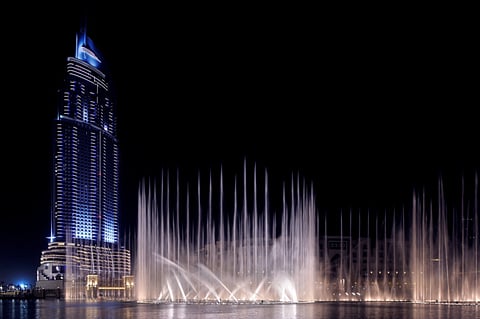Steep discounts on Dubai’s high-end properties
Offers to sell at prices lower than original launch price starting to come through

Dubai: “Negative premium” is starting to show up in Dubai’s property market, with fairly steep discounts — 5-8 per cent off on the original price — starting to be offered in the secondary market on recent off-plan launch units.
This is most apparent for high-end properties, located at both established locations and emerging ones.
In one such instance, the discount was set at 14 per cent for an apartment — which cost Dh1.9 million — at one of the most prestigious high-rise developments currently under construction.
At another, located in the Downtown area, an apartment was going for a 10 per cent markdown on the original price of Dh1.75 million.
Such discounts have been starting to float around in sales pitches over the last two months or so and even in the advertisements put out by estate agents, sources say. They add that the trend will bring about significant pricing pressure for both upcoming off-plan launches as well as in the secondary market.
The need to add fresh incentives was brought on by the 50 per cent drop in transactional activity during the first half of the year, with secondary market sales being the worst affected.
Early exit
“Discounts are becoming a must-have for sellers, and particularly if they want to make an exit out of their investment at the earliest,” said Sameer Lakhani, Managing Director at Global Capital Partners. “The majority of such offers in the market now are for projects that were launched in the last 12-24 months, where the investor might have bought in expecting a sizeable markup by now.
“When the anticipated gains have not come through, these investors are caught between a rock and a hard place. The best option could be to seek an exit, even at a negative premium.” (Negative premium kicks in when an asset is being sold at a price lower than what it was bought for.)
The problem is that once discounting becomes a habit, it gets extremely difficult to wean the market — and buyers — out of it. Selling a few units at a particular high-rise or community will immediately impinge on the pricing of others within the same cluster.
And once a particular property sells at a lower price, potential buyers will immediately set that as the benchmark or the pricing they want to buy in. The pressure on prices that are seen as carrying a premium would be acute.
Coming weeks will confirm whether the discount-bearing units represent a small pool of investors seeking to make a quick exit, even taking a hit in the process.
If it persists, it could set off a “race to the bottom” as more sellers/investors compete on discounts than on the intrinsic merit of the property.
For a developer, the one thing he does not want to see are units from a recent launch being advertised at a lower price in the secondary marketplace. More so as the developer may have further releases coming up at the same project.
But there is also a flip side to any argument. According to Ahmet Kayhan, CEO of the property sales tracker Reidin, “It is important to remember that while secondary market activity has slowed down, where there are perceived 'deals' on offer, they are quickly getting snapped up.
"It is important to note that Dubai is in the midst of a consolidation/correction mode and in many instances investors are bargain hunting given the city’s growth trajectory.”
Dollar strength
“What we do see are instances of negative premiums increasing, but that is a function of many variables. These include the general market correction, excessive speculative activity in certain cases and/or external variables such as dollar strength, etc”
Indeed, the dollar’s strength is the variable that is having the most telling effect, especially with overseas investors. “The greenback’s up 18 per cent on the euro, 16 per cent on the sterling, and 33 per cent on the rouble since December last,” said Lakhani. “With the rupee, it’s only gained 10 per cent during the period, but could become more pronounced in the second-half.
“The dollar’s standing represents the biggest external concern for Dubai’s property market.”



